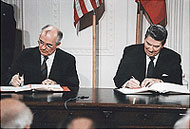Russians think Soviet breakdown could have been avoided, many have no regrets – poll

MOSCOW. Dec 29 (Interfax) – Fifty-six percent of Russians regret the disintegration of the former Soviet Union. The indicator stood at 65% a decade ago, the Russian Public Opinion Study Center (VTsIOM) told Interfax on Saturday.
Mostly, the Soviet Union is mourned by people older than 45 (70-83%), people with little education (72%), non-Internet users (75%), Muscovites and St. Petersburg residents (64%).
Thirty-three percent have no regrets (27% ten years ago), mostly young people (54%), people with higher education (37%) and active Internet users (43%).
Sixty-seven percent of Russians believe that the Soviet Union fostered cultural and economic development of its people (72% ten years ago). This opinion is mostly expressed by elderly respondents (84%), non-Internet users (80%), Muscovites and St. Petersburg residents (74%). The opposite opinion is expressed by 20%, mostly people in cities with over one million residents (29%), young people (27%) and active Internet users (25%).
A quarter of the respondents said in 1998 that the disintegration of the former Soviet Union was inevitable. The indicator has grown to 35%. Still 55% believe that could have been avoided, most of them are elderly (74%), non-Internet users (68%), people with little education (62%), villagers and people in big cities (58%). The peak of belief in the possibility of preservation of the Soviet Union (64%) was in 2000. The rate has been declining since then.
It was hard for people to say why the Soviet Union broke down immediately after the disintegration and the majority blamed the non-viability of a communist state in the transfer to democracy (27%), the erroneous policy of the central authorities (22%), and the policies of Gorbachev, Shevardnadze and Yakovlev (18%).
Opinions changed 20 years after and the policy of Gorbachev, Shevardnadze and Yakovlev was named the primary cause of the Soviet collapse (45%). Fewer people blame the non-violability of the communist state and mistakes of the central authorities in relation to the republics (13%).
Elderly respondents tend to accuse Gorbachev, Shevardnadze and Yakovlev (65% compared to 24% of the young), and young people say the republics wanted independence (24% compared to 7% of elderly people) and Soviet non-viability in the transfer to democracy (16% vs. 8%).
VTsIOM held the poll in 138 towns and cities in 46 regions of Russia.
The 90th birth anniversary of the Soviet Union would be marked on December 30.
Soviet President Mikhail Gorbachev resigned on December 25, 1991. The Soviet flag was replaced with the Russian flag on the Kremlin Palace’s dome on that night.
